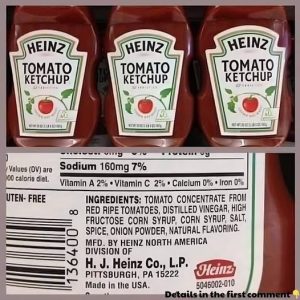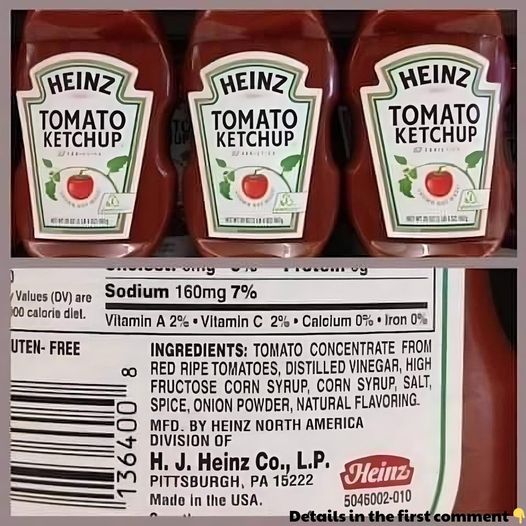It has long been controversial to discuss the use of high fructose corn syrup (HFCS) in widely consumed food products, with Heinz Ketchup at the centre of the ongoing discussion. It is critical for consumers to obtain information from a variety of reliable sources in order to comprehend the subtleties around this complicated element as they attempt to make educated decisions about their dietary preferences.
HFCS is an extremely sweet and affordable substitute for regular cane sugar. It is made from corn starch and is processed to turn glucose into fructose. But there is a lot of disagreement among scientists and health-conscious consumers about the possible health consequences of HFCS, including its possible links to obesity and metabolic syndrome.
The significance of moderation is one of the most important things to keep in mind while talking about HFCS. It is crucial to understand that consuming excessive amounts of any sweetener—HFCS, cane sugar, or even honey—can have detrimental effects on one’s health. Maintaining a healthy lifestyle requires finding balance and being aware of total caloric consumption.

Another thing to keep in mind is that HFCS is frequently made from genetically modified (GMO) maize, which is the subject of ongoing studies and arguments over the possible health implications of GMO goods. As the scientific community continues to investigate the long-term effects of consuming genetically modified organisms, this is a factor that consumers should be conscious of when choosing their diet.
Examining Heinz Ketchup in particular requires looking at the product’s whole nutritional profile, which includes not only the amount of HFCS but also other additives, preservatives, and the product’s total calorie and sodium content. A more thorough knowledge of the ketchup’s possible effects on health can be obtained by assessing its holistic nutritional content.
It’s important to note that some research, including a Princeton study, has discovered variations in the way rats metabolise HFCS in contrast to other sugars. These studies, nevertheless, have come under fire for failing to adequately represent how human metabolism works, and the evidence regarding HFCS’s direct effects on health is still mostly conflicting.

In summary, the discussion on the potential health effects of HFCS is intricate and varied. Although HFCS is an ingredient in Heinz Ketchup, it’s vital to remember that this sweetener is also used in a lot of other well-known food products. In the end, choosing knowledgeable food decisions necessitates thorough investigation and comprehension of personal health requirements and concerns. Consulting with a certified healthcare expert is always advised for particular health-related enquiries or concerns.
Customers must continue to be on the lookout for trustworthy sources of information as the debate around HFCS heats up. By doing this, people will be able to make decisions that are well-informed and in line with their individual dietary preferences and health goals, enabling them to live longer, healthier lives.
The discussion surrounding HFCS is a poignant reminder of the value of critical thinking, honest communication, and a dedication to evidence-based decision-making in the constantly changing field of food and nutrition. It is our joint duty to keep learning about and comprehending the subtleties that influence the foods we eat as we negotiate the complexity of contemporary nutritional options, making sure that we make decisions that put our general health first.


